
Expanding Our Horizons
Surgeons Making an Impact Around the World
The Association of Women Surgeons Foundation is pleased to launch "Expanding Our Horizons" a new series dedicated to highlighting inspiring women surgeons engaged in important global health initiatives.
Busra Ozkaya
MD
Vascular Institute of New York

How do you see yourself fitting into the global surgical community?
As an obstetrician-gynecologist from Turkey currently contributing to vascular surgery research under Dr. Anil Hingorani in New York, I view myself as part of a diverse, interconnected surgical community. My goal is to bridge women’s health and surgical innovation through global collaboration.
What goal(s) are you working toward?
I am working toward advancing my surgical career in the United States while continuing to engage in multidisciplinary research that bridges women’s health and vascular surgery. My long-term goal is to contribute to global efforts improving surgical innovation and access for women worldwide.
What are your biggest challenges?
My biggest challenge has been navigating the transition between two healthcare systems while maintaining continuity in clinical experience and research productivity. Adapting to a new environment as an international surgeon requires persistence, but it has also strengthened my resilience and broadened my global perspective.
How can women surgeons play a role in the solution?
Women surgeons can lead meaningful change by fostering mentorship, collaboration, and inclusion across borders. By supporting one another and amplifying diverse voices, we can create a more equitable and innovative global surgical community.
What impact has AWS and AWSF had on your career?
AWS has given me a strong sense of belonging and inspiration as a woman surgeon pursuing a career across continents. The Foundation’s mentorship and global initiatives have encouraged me to connect across disciplines and continue advancing women’s leadership in surgery.
Ijeoma Aja
Bsc Med Sc, MBChB, FGCS
Eastern Regional Hospital Koforidua. Ghana
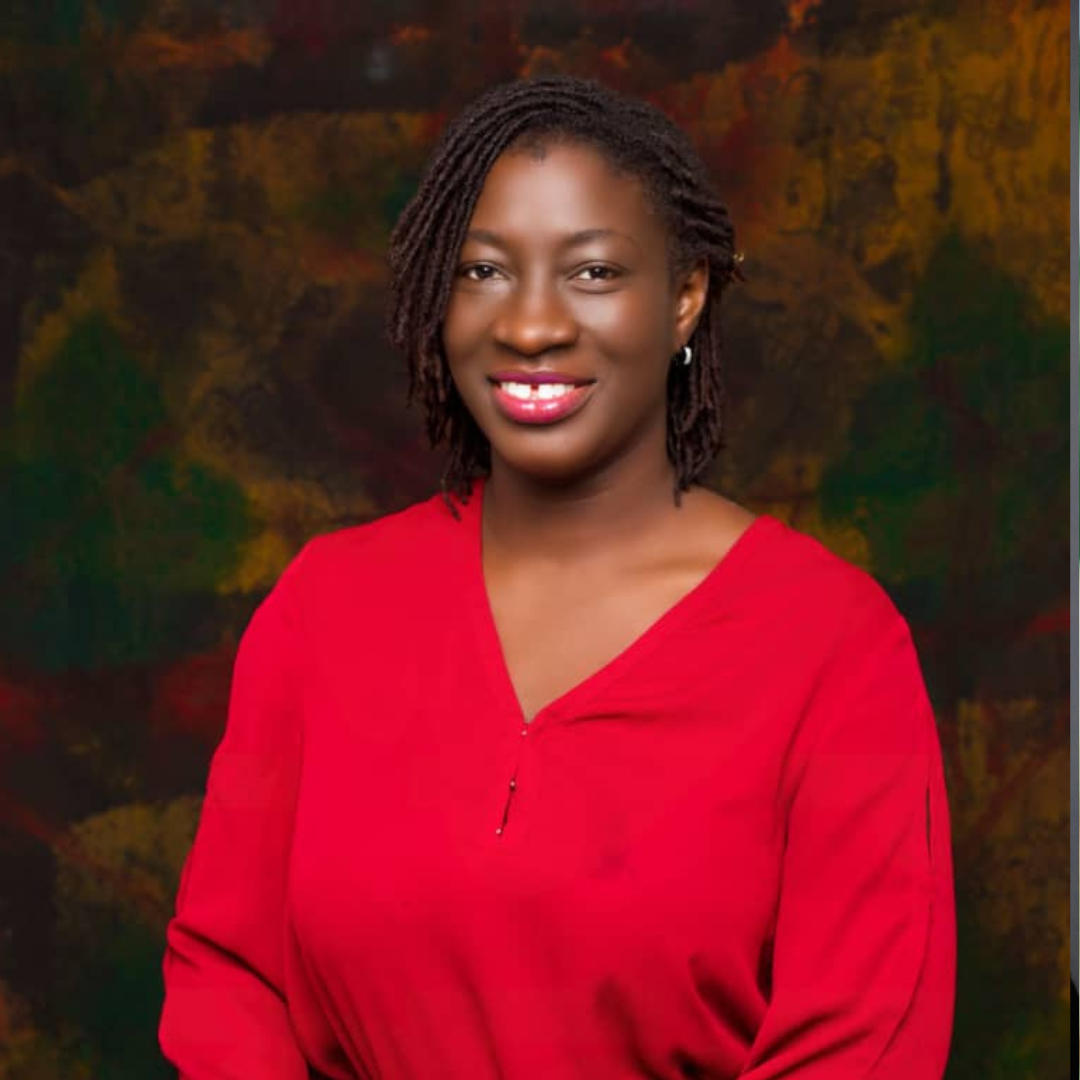
How do you see yourself fitting into the global surgical community?
I see myself offering specialized surgical services in my underserved community, training surgeons, being a mentor to young female surgeons and collaborating with local and international doctors to bring the world to my doorstep.
What goal(s) are you working toward?
I am working on bringing colorectal surgical services to my community by educating myself and acquiring mentors from around the world. Collaborating with international colleagues to help build specialized endoscopic and laparoscopic services in my community. Passing on my knowledge to the next generation of medics.
What are your biggest challenges in reaching your goal?
Lack of financial resources to acquire necessary equipment and training, lack of local surgical expertise to train in complex laparoscopic procedures.
How can women surgeons play a role in the solution?
Women surgeons can mentor and make their time, expertise and rich social connections available to their younger colleagues who need a step up on the career ladder.
What impact has AWS and AWSF had on your surgical career?
I have had the privilege of being mentored and guided on my journey by wonderful ladies who are members of the association such as Prof Ann Lowry and Prof Gifty Kwakye. They have kept my eyes on the vision and given me opportunities I could only dream of hitherto. I can only hope I would be such a shining example to the next generation.
Justina Seyi-Olajide
MBBS, FWACS, FACS
Lagos University Teaching Hospital, Lagos, Nigeria

How do you see yourself fitting into the global surgical community?
I see myself as an integral part of the global surgery community, contributing through research, advocacy, and capacity-building initiatives. My work focuses on strengthening surgical systems, improving access to care, and addressing disparities, particularly in resource-limited settings. Through leadership roles, academic contributions, and policy engagement, I aim to shape strategies that enhance surgical outcomes and drive feasible and contextualized healthcare solutions.
What goal(s) are you working toward?
I am working towards strengthening surgical systems, improving access to high-quality surgical care in resource-limited regions, and developing evidence-based interventions within the same sphere. My research focuses on pediatric surgery, health system strengthening, policies, global health and global surgery. Additionally, I aim to contribute to capacity building through education, mentorship, and advocacy, ensuring sustainable improvements in surgical care and health equity.
What are your biggest challenges in reaching your goal?
It is challenging to navigate systemic barriers that limit access to surgical care such as inadequate infrastructure, workforce shortages, and funding constraints. Additionally, balancing family, research, clinical responsibilities, and policy engagement while ensuring tangible impact requires significant support, prioritization and collaboration. Support from family, easy access to mentors, collaborations and persistence among others a have been helpful in overcoming these.
How can women surgeons play a role in the solution?
Women surgeons can help to drive solutions through research, education, advocacy, mentoring and by leading initiatives to strengthen surgical systems. By promoting collaborations and working to develop solutions that address systemic barriers, they help build more inclusive and resilient surgical ecosystems.
What impact has AWS and AWSF had on your surgical career?
I first learned about AWS as an intern in Nigeria and it was highly inspirational learning about women surgeons and the organization. It was part of what encouraged me to hold to my dreams of being a surgeon. I read the "pocket mentor" and got insights that have helped me immensely during my journey.
Where can people learn more?
globalchildrenssurgery.org
Jennifer Rickard
MD, MPH, FACS, FCS(ECSA)
Associate Professor
University of Minnesota
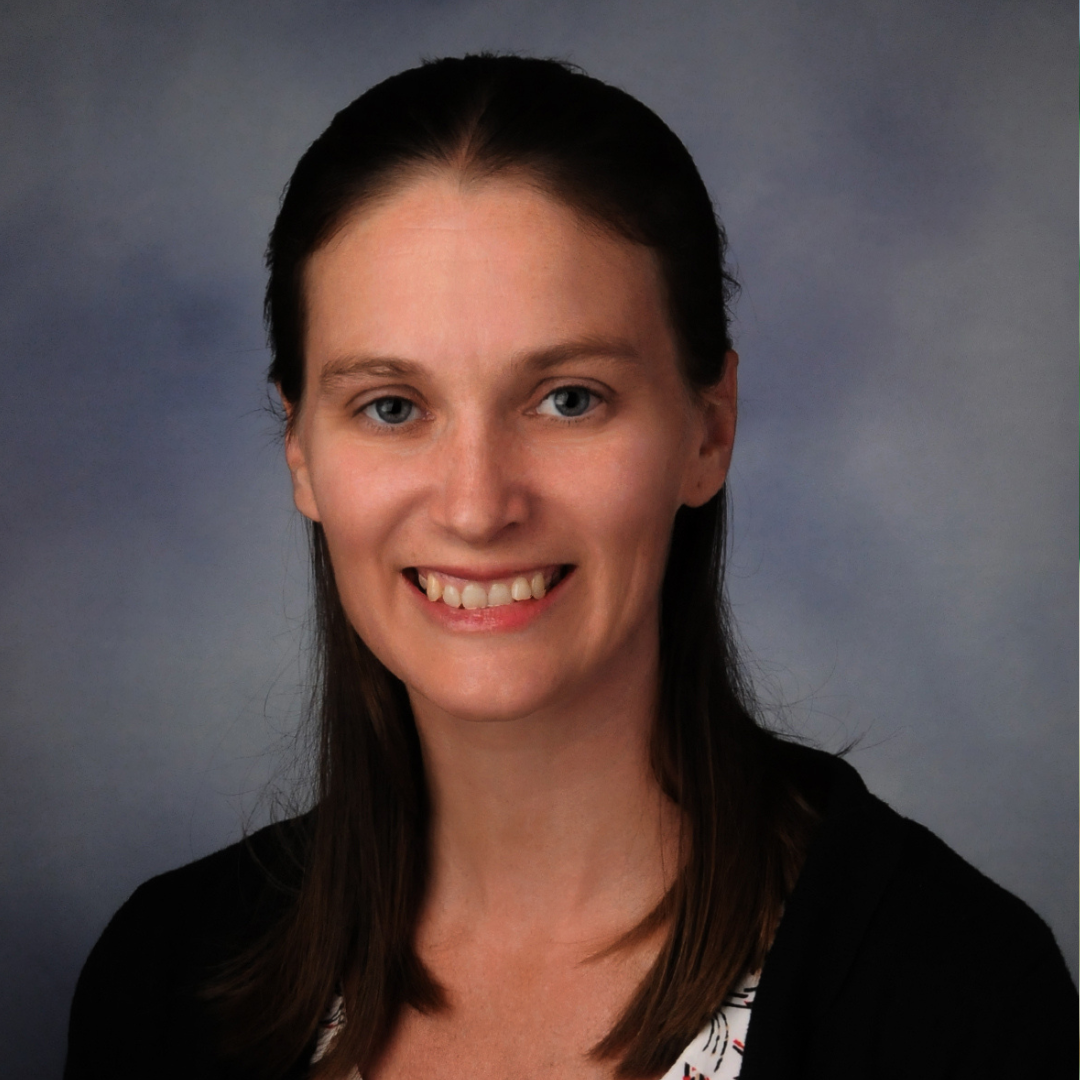
How do you see yourself fitting into the global surgical community?
My passions and interests focus on building local capacity. Initially, I worked with a program where I primarily trained students and residents in general surgery. With time, my former students became my colleagues and they no longer need me to provide clinical care. My work has now evolved to help individuals develop more advanced skills, through research training and fellowship programs. I hope to further translate my skills and experience to other settings.
What goal(s) are you working toward?
- Trauma and critical care fellowship training in East Africa region
- Strengthening academic surgeons through development of research skills and independence-Supporting colleagues as they develop their careers
What are your biggest challenges in reaching your goal?
- Time: my time as well as my partners’ time
- Money: not enough funding and limitations on what funding is available for the work-Competing interests: Many things can and need to be done. How do you prioritize?
How can women surgeons play a role in the solution?
With a shortage of healthcare workforce globally, women have a pivotal role to play in closing this gap. Not only can they fill the numbers gap, but can give different perspectives and novel solutions
What impact has AWS and AWSF had on your surgical career?
AWS partnering with Women in Surgeons Africa: opportunity to strengthen and support young female surgeons in Africa.
Rahel Nardos
MD, MCR
Associate Professor
Director of Global Women's Health
University of Minnesota
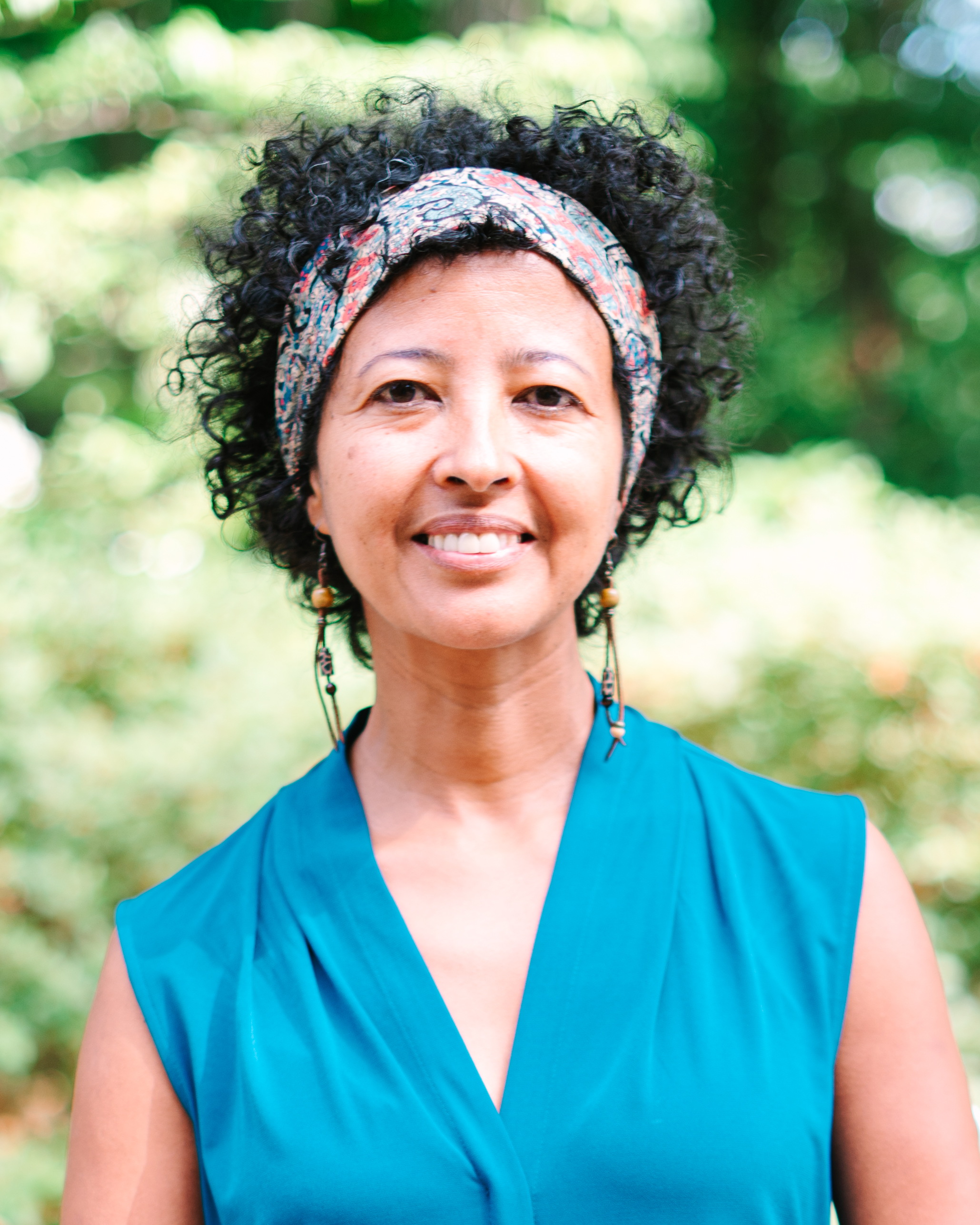
How do you see yourself fitting into the global surgical community?
The global surgical community works towards making safe and effective surgery available for all irrespective of geography or socioeconomic status. I am grateful to be part of this community dedicating my career to addressing the surgical needs of women who suffer from devastating pelvic floor conditions related to childbirth and aging globally.
What goal(s) are you working toward?
My goals are to ensure that every woman can attain her full potential no matter the lottery of her birth. I do this through compassionate clinical care , healthcare innovation to meet the needs of patients in low resourced settings, educating the next generation of globally minded healthcare professionals and collaborative and community engaged research.
What is your biggest challenge in reaching your goal?
The biggest challenge is finding appropriate resources and time to grow my various initiatives and to make it possible for others like me to realize their full potential. Another challenge is the institutional, national and global uncertainties related to leadership, finance, and political instability that can constrain growth and even disrupt gains.
How can women surgeons play a role in the solution?
Women are generally very community minded and have the capacity to balance multiple demands on their time. Although this can often be a strain, it also makes them incredibly resourceful particularly when it comes to tapping community assets for better and more sustainable solutions.
Where can people learn more about your work?
https://globalhealthcenter.umn.edu/global-womens-health
Antoinette Afua Asiedua Bediako-Bowan
BSc Med Sc., MBChB, FWACS, PhD, FGCS
Professor
University of Ghana Medical School/ Korle Bu Teaching Hospital, Accra Ghana
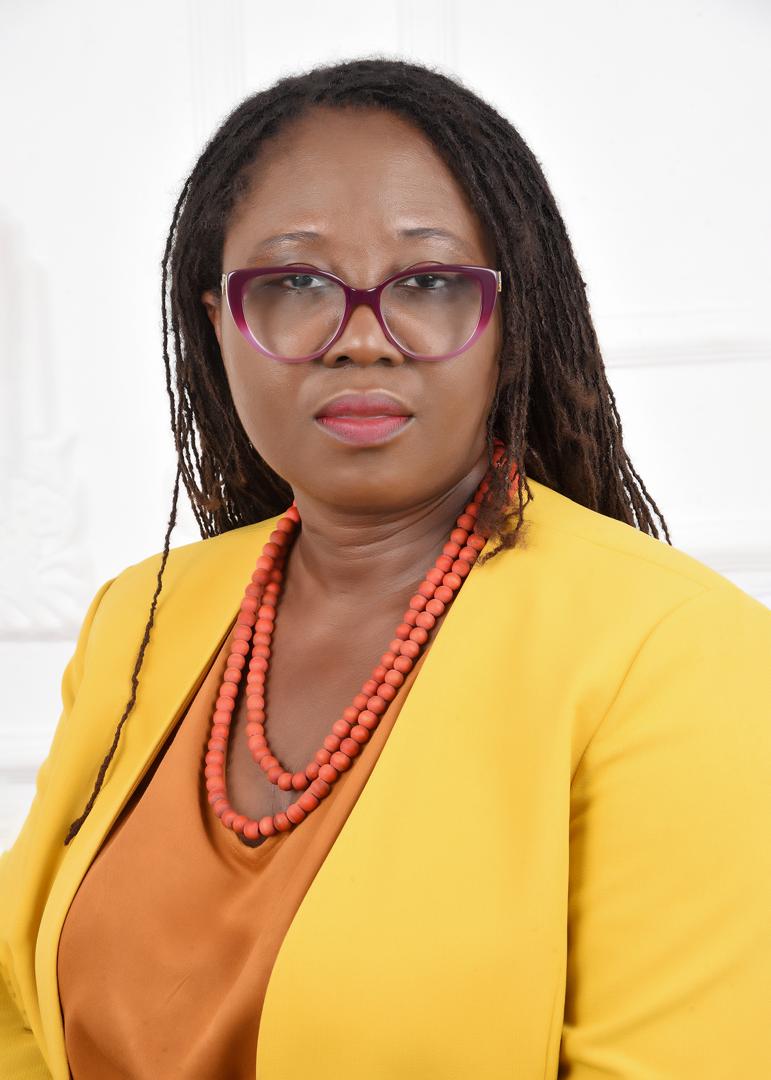
How do you see yourself fitting into the global surgical community?
Collaborate with other surgeons worldwide to mentor young surgeon trainees and medical students to consider joining the surgical field.
What goal(s) are you working toward?
- To pursue a career as a Colorectal Surgeon
- To offer the best in healthcare delivery with patient safety as a priority
- To contribute to health care personnel training, research and development in medical advancement, processes and procedures.
What is your biggest challenge in reaching your goal?
Access to consistent training in minimally invasive surgery to help us incorporate it into our practice and train younger surgeons in Ghana.
How can women surgeons play a role in the solution?
Offer mentorship and help us build the capacity to perform minimally invasive surgeries in our practice. Offer mentorship to our young surgeon trainees and medical students to sustain their interest in surgery.
What impact has AWS and AWSF had on your career?
I have had the fortunate opportunity to be mentored by some members of AWS (including Ann Lowry), who enhanced our capacity to offer colorectal surgery to our patients in our practice in Ghana.
Sherry M. Wren, MD FACS FCS(ECSA)
Professor of Surgery
Stanford University
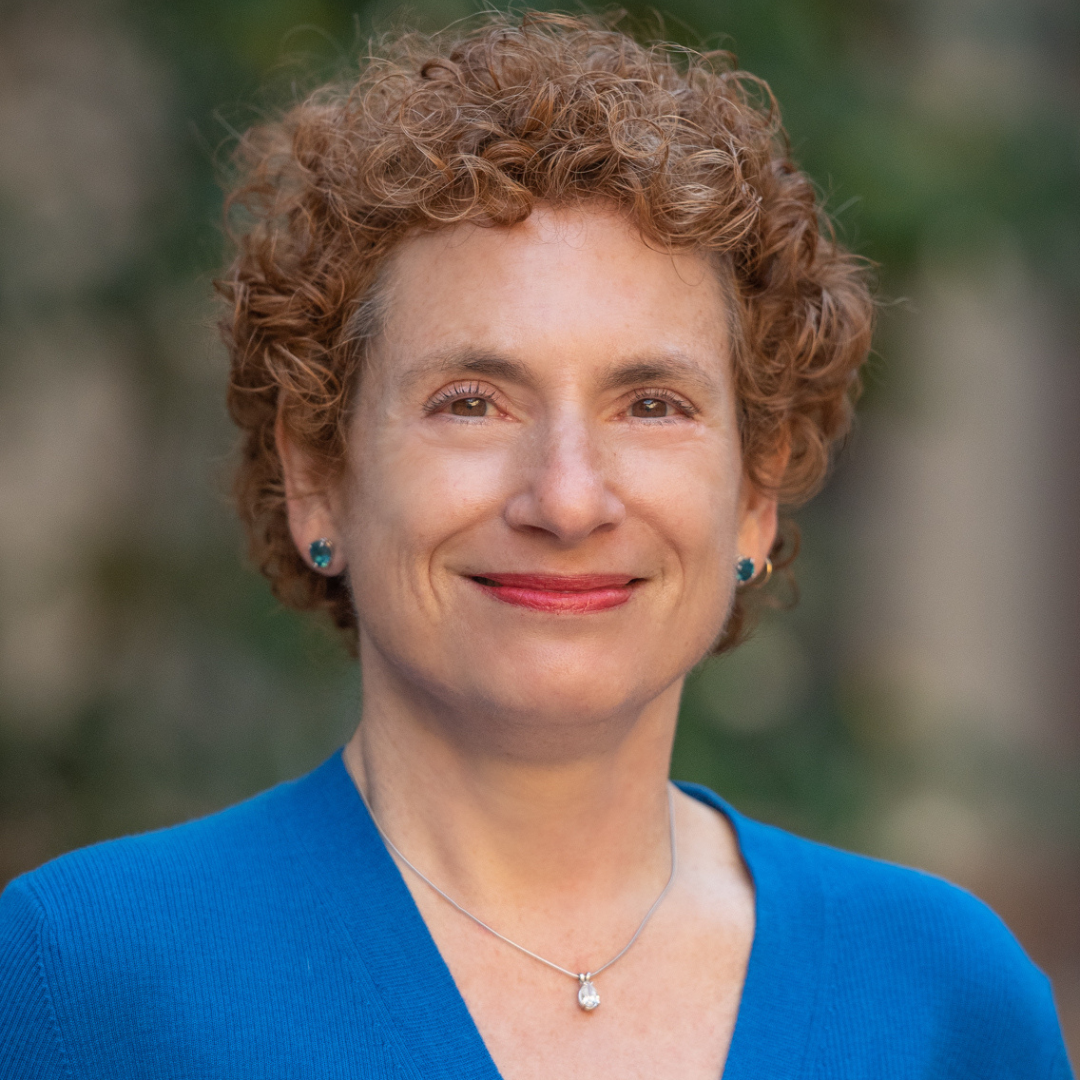
How do you see yourself fitting into the global surgical community?
I have had several roles in the global surgical community. I initially worked in conflict zones for Doctors Without Borders. This experience and the required scope of practice led to developing a hands-on surgical education course to help train surgeons from high-resource areas in the necessary knowledge, skills, and techniques to work in low-resource zones. It also made me question why it was necessary to fly a surgeon from California to DR Congo; shouldn't there be local surgeons who could do the work? I became involved in educational partnerships in Sub-Saharan Africa, joining the College of Surgeons of East, Central, and Southern Africa to help develop a surgical workforce in the geographically large region. I have worked with COSESCA as a council member on many initiatives, including fellowship exams, research, and the inclusion of women in surgery training programs. Seeing so many new surgeons training and graduating in the region has been a joy. I also have an active research program on Humanitarian Surgical Responses in Conflict Zones. I have met, mentored, and worked with so many people over the years, it has enriched my life significantly. My newest chapter is as the Editor in Chief of the World Journal of Surgery where I am actively doing author outreach to regions not as represented in surgical publishing.
What goal(s) are you working toward?
- Increasing surgeons in low resourced areas with a special emphasis on attracting women into the profession
- Developing a mortality calculator that could be used in humanitarian conflict responses as a tool for quality assessment and mortality prediction.
- Trying to understand why women are missing as surgical patients, outside of reproductive care issues, in many lower resourced areas.
What is your biggest challenge in reaching your goal?
Funding and data!
How can women surgeons play a role in the solution?
Women and men can be a part of the solution. We need people to serve as mentors, sponsors, and understand the path and challenges for people to become surgeons in these regions.
What impact have AWS and AWSF had on your surgical career?
AWS and its members have been mentors, sponsors, friends, and co-conspirators on my professional journey. Lifelong friendships with incredible people have brought joy into my life.
Gifty Kwakye, MD MPH
Arthur W Fleming M.D. Research Professor; Clinical Associate Professor of Surgery; Assistant Dean for Clinical Medical Education, University of Michigan
How do you see yourself fitting into the global surgical community?
As a “Surgical Educator Without Borders”, I see myself as a bridge, a translator, and a connector within the global surgical community. Having been born and raised in Ghana but trained entirely in the U.S., I have the privilege of understanding two beautiful yet complex cultures. This unique perspective allows me to navigate and integrate different surgical approaches, fostering collaboration, education, and mentorship across borders to advance equitable colorectal care.
What goal(s) are you working toward?
I am working toward building sustainable colorectal care in Ghana through education, mentorship, and capacity building. I am also passionate about advancing mentorship frameworks that support trainees, particularly women in surgery, to foster a more inclusive and diverse global surgical workforce.
What is your biggest challenge in reaching your goal?
Systemic barriers, particularly financial constraints and resource limitations, make sustainability efforts challenging. Out-of-pocket payments for care place a significant burden on patients, and the lack of long-term funding models for training and infrastructure hinders the ability to build lasting surgical programs. Creating solutions that are both impactful and financially sustainable remains a key challenge.
How can women surgeons play a role in the solution?
Women surgeons can play a critical role by mentoring and sponsoring trainees and actively participating in global surgery initiatives. I personally know firsthand the importance of representation —there’s nothing more powerful than walking into a room, looking across the room and seeing someone who looks like you! When trainees see women leading and excelling in surgery, it shifts perceptions and opens doors for the next generation.
What impact has AWS and AWSF had on your surgical career?
AWS has provided a network of mentorship, sponsorship, and collaboration that has shaped my career in profound ways. One of the most meaningful relationships has been with Dr. Ann Lowry, who has mentored me since my fellowship and continues to be a trusted advisor and partner in my work to build colorectal surgery capacity in Ghana. Her guidance has reinforced the power of mentorship—not only in shaping individual careers but also in driving sustainable change in global surgery. Through AWS, I have experienced the full circle of mentorship, now advising and partnering with others to advance surgical education and access.
|